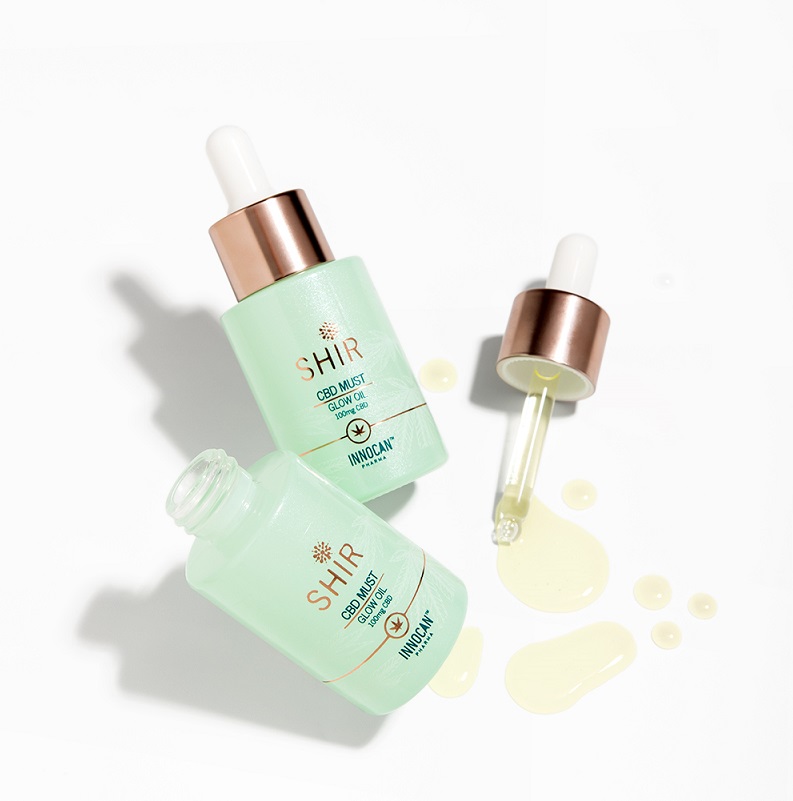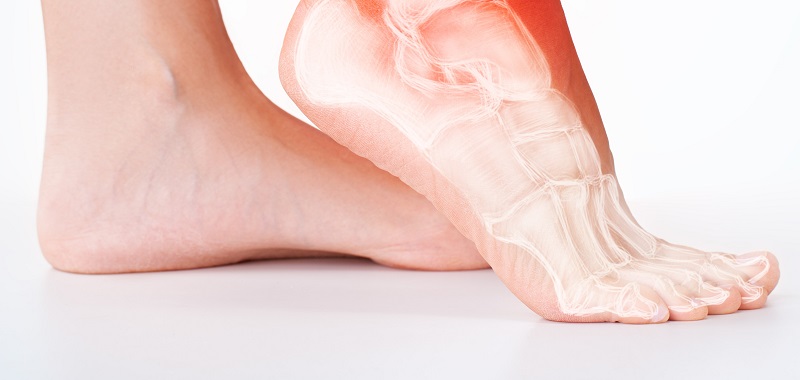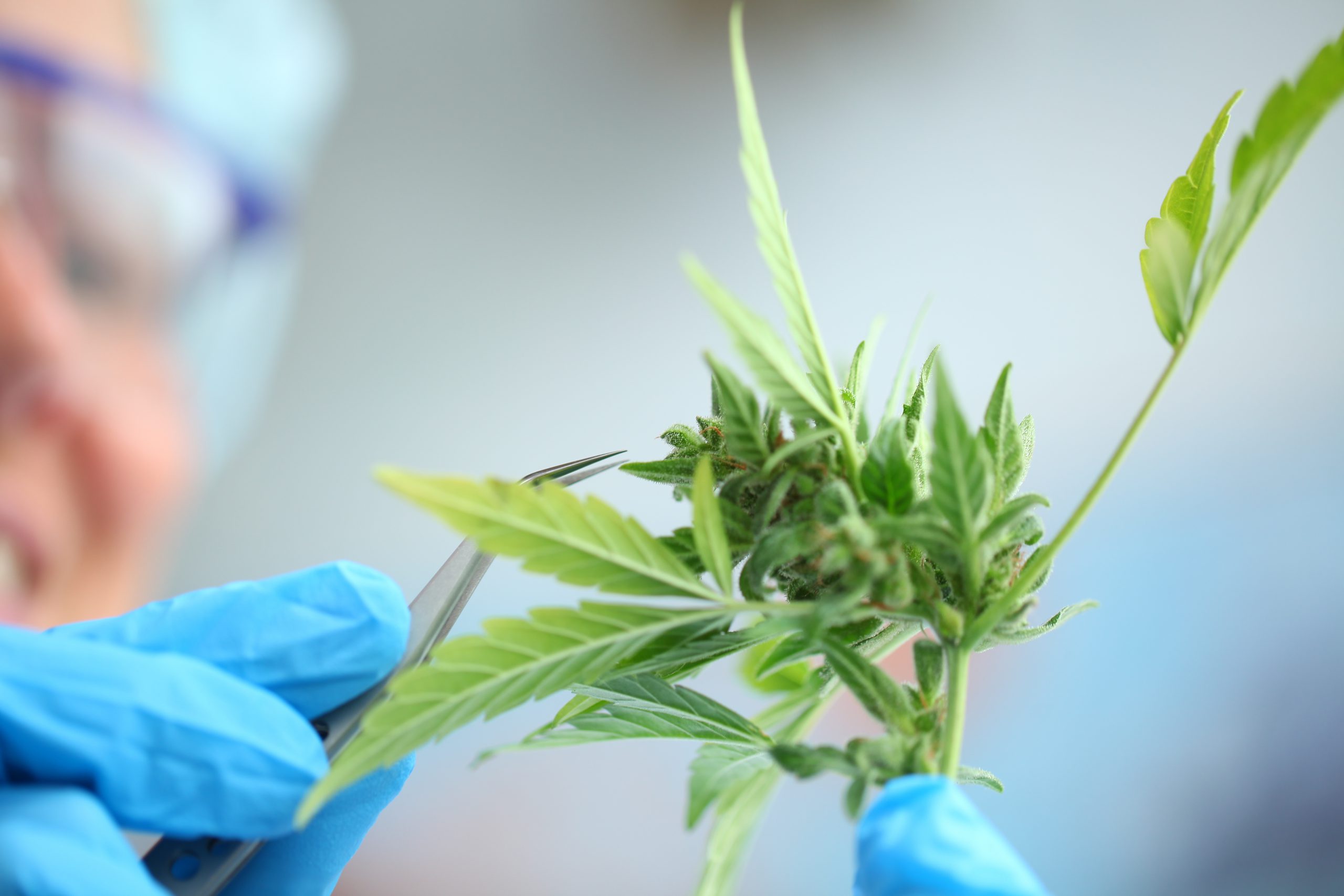The Science Behind How CBD Topicals Treat Dermatological Inflammatory Diseases

The popularity of cannabinoids is not something that’s under wraps. There are numerous cannabinoid products in the market – pills, edibles, capsules, tinctures, vapes, and more – that are being increasingly used to treat various medical conditions. While these products are immensely potent and popular, another type of cannabinoid product that’s widely used is CBD topicals.
CBD topicals are products that are applied directly to the skin of the patient. These include a range of options, including pain relief creams, pain relief oils, pain relief sprays, pain relief roll-ons, anti-aging facial serums, glow oils, eye serums, CBD body oils, facial serums, face oils, and anti-acne creams.
The most common use of CBD topicals is in dealing with the pain and inflammation of bones. Medical conditions like arthritis, temporomandibular joint disorder (TMJ), and so on are painful conditions that result from pain and inflammation of the respective joints. To relieve these symptoms, CBD topicals are being used at growing popularity. However, this is not the only area where CBD topicals have proven to be immensely beneficial. One of the biggest uses of CBD topicals is in patients dealing with dermatological inflammatory conditions. Inflammatory skin conditions are very common in the field of dermatology. Some of these include eczema, rosacea, epidermolysis bullosa, psoriasis, and dermatitis.
CBD topicals are also very effective in dealing with mild inflammation of the skin, rashes, cystic acne, sunburns, and more. To decide the best course of action when it comes to CBD topicals, we must also understand how these CBD topicals work. What areas do the CBD topicals target when trying to treat inflammation? What concentration of CBD products is effective in dealing with skin inflammation? How can you increase the potency of CBD topicals to boost its anti-inflammatory properties? Are there any precautions one needs to take in this regard? Let us dig deeper and have a closer look at the science behind how CBD topicals treat skin inflammatory conditions.
CBD topicals and the endocannabinoid system
The endocannabinoid system in our body is responsible for maintaining numerous physiological and biochemical processes. The proper completion of these processes is crucial in maintaining skin homeostasis and a proper immune response. Now, both of these elements – skin homeostasis and immune response – are critical factors when it comes to skin inflammation. A joint 2017 study conducted by the University of California, Davis, and the University of Arizona, Tucson, suggests that the endocannabinoid system plays a very therapeutic role in dealing with inflammatory skin diseases such as eczema.
There are three main components of the endocannabinoid system. These include the endocannabinoids, receptors, and enzymes. The endocannabinoids bind to the receptors to produce a signal. This signal is received by the target area to produce an activator or inhibitor response. Further, once this response completes its life cycle, the enzymes work on the receptors to break down the endocannabinoids and bring the signaling to a stop. However, if, for any reason, there’s a disruption in even one step of this process, the person can develop medical issues. This is exactly what happens with people suffering from inflammatory skin disease.
In this regard, CBD topicals are proving to be especially useful. The cannabinoids in CBD body oils, facial serums, and face oils interact directly with the endocannabinoid system. These interactions can take place in two ways. Cannabinoids attach themselves to the CB1 and CB2 receptors in the body. This attachment triggers signaling from the endocannabinoid, enabling the target problem area to produce a response that would relieve symptoms of the disease. Another way how cannabinoids work with the endocannabinoid system is by preventing enzymes from carrying out a premature breakdown. If the enzymes break down the endocannabinoids on the receptors prematurely, the signaling is disrupted, thus preventing the completion of the crucial physiological process. However, using cannabinoids can prevent this from taking place. Thus, the physiological process won’t be disrupted in the future, enabling the patient to feel relief from the symptoms of inflammatory skin disease.
CBD topicals and their therapeutic role in several inflammatory skin diseases
Inflammatory skin diseases are not usually chronic or life-threatening. However, the nature of these diseases is immensely problematic. Constant skin irritation, itching, redness, pain, inflammation, blisters, and rashes can severely complicate a person’s life. They are continuously uncomfortable and in a painful state owing to the constant itching and inflammation they feel. These inflammatory skin conditions not only affect their quality of life but also severely hamper their self-esteem. Plus, skin conditions are almost always perceived with a certain taboo. Misinformed individuals think that if they come in contact with the patient, they can develop these inflammatory skin conditions as well. This is why it becomes incredibly important to find substances that can offer therapeutic effects for such patients.
CBD topicals for psoriasis
A fairly common skin inflammatory condition, psoriasis is largely a non-curable disease. In this condition, the skin cells of the patient multiply at a rate ten times faster than the usual. This results in the formation of scaly and itchy patches in numerous areas of the body. These rashes are incredibly painful and itchy and mostly develop on the patient’s elbows, knees, scalp, and lower back. In some cases, psoriasis can also lead to the development of psoriatic arthritis. Psoriasis is caused by a disrupted immune response in which keratinocyte cell proliferation becomes enhanced. In normal conditions, keratinocyte cell proliferation is essential to maintain the structure of the epidermis.
However, in patients suffering from psoriasis, this keratinocyte cell proliferation becomes enhanced, resulting in multiplied production of the skin cells in abnormal quantities. Even though there’s no cure for this skin condition, doctors recommend using CBD topicals such as CBD body oils, facial serums, and face oils to relieve some of the symptoms. A 2007 study published in the Journal of Dermatological Science proved that the cannabinoids in CBD topicals help inhibit keratinocyte cell proliferation. This prevents abnormal skin cell production, thereby bringing the associated inflammation of the skin under control.
CBD topicals for acne
In patients suffering from mild to severe acne, cyclooxygenase and lipoxygenase are known to show enhanced expression. These enzymes are important factors in pathways that biosynthesize arachidonic acid-derived lipid mediators. These mediators are important to mediate inflammatory reactions. However, enhanced expression of cyclooxygenase and lipoxygenase disrupts the proper biosynthesis of arachidonic acid-derived lipid mediators. This results in severe acne in the patient that becomes very difficult to treat. Other reasons for acne include overstimulation of the human sebocytes, resulting in increased sebum production, and flaring up of the pro-inflammatory p65 NF-κB pathway.
A 1988 study conducted by The School of Pharmacy, University of London, proved that the analgesic and anti-inflammatory properties of CBD topicals are very crucial in inhibiting the action of cyclooxygenase and lipoxygenase. This allows proper functioning of the arachidonic acid-derived lipid mediators, thereby bringing the acne inflammation under control. Another 2014 study published in the Journal of Clinical Investigation shows that CBD topicals carry anti-inflammatory and sebostatic properties. This means that CBD topicals are powerful agents in helping reduce the production of sebum in the acne patient. They also inhibit the pro-inflammatory p65 NF-κB pathway that results in increased inflammation of the acne-prone skin.
CBD topicals for allergic contact dermatitis
One of the most common inflammatory skin diseases is allergic contact dermatitis. It affects millions of people in a year and is mostly characterized by a localized red rash. It is caused when the skin comes in contact with a skin irritant such as harsh soap, detergent, poison ivy, jewelry, cosmetics, or fragrances. The inflammation results in painful and consistent itching that can get very severe if not treated timely. This inflammation is caused by the overstimulation of cytokines such as MCP-2, IL-6, IL-8, IL-17, IFN-γ, and TNF-α.
A 2018 study published in the Journal of Pharmacology and Experimental Therapeutics proved that CBD topicals were effective in reducing the inflammation caused due to allergic contact dermatitis. This reduction is carried out by the inhibition of cytokines, namely MCP-2, IL-6, IL-8, and TNF-α. Another 2015 study published in the Journal of Neuroinflammation showed that CBD is effective in inhibiting IL-6, IL-8, IL-17, TNF-α, and IFN-γ and the mediated response of T-cells and B-cells. Patients suffering from allergic contact dermatitis can thus make use of CBD topicals such as CBD body oils, facial serums, and face oils to bring about such anti-inflammatory responses in their bodies.
CBD topicals for melanoma
Melanoma is one of the most common types of skin cancer that results largely due to DNA deterioration and immunosuppression caused by ultraviolet radiation. According to a paper published in the National Library of Science, the inflammation caused by solar radiation can very soon develop into chronic inflammation. This chronic inflammation is largely responsible for the initiation of tumor genesis in humans. In later stages of this chronic inflammation, it also assists in the progression of the tumor. While research, in this case, is fairly limited, current developments point to the fact that CBD is effective in dealing with the progression of melanoma.
Caspases are protease enzymes that play a crucial role in programmed cell death. A 2015 study published in the National Library of Science found that cannabinoids were highly effective in activating caspases. This activation brought forth cytotoxic autophagy or programmed tumor cell death. When tumor cells begin to die, the tumor progression comes to a halt and can even be completely cured in some cases. It has been suggested that the activation of caspases was brought forth due to the anti-inflammatory properties of the CBD topicals. This study also suggests that CBD is effective in triggering ROS or reactive oxygen species production. These are chemically reactive species containing oxygen, which are important in bringing forth cell death.
CBD topicals for Epidermolysis bullosa
Epidermolysis bullosa is a skin inflammatory disease, which is a rare genetic disorder. People suffering from Epidermolysis bullosa develop painful blisters on their skin from the slightest friction or trauma. In some severe cases, the blistered and inflamed skin can also develop small white spots that result in severely scarred skin. The slightest of friction can result in painful inflammation that becomes very difficult to control or get relief from. Like several other skin inflammatory conditions, Epidermolysis bullosa does not have many treatment options either. However, CBD topicals have come out to be very effective in dealing with its symptoms lately.
A joint 2018 study conducted by the Department of Dermatology, West Virginia University, and School of Medicine, Stanford University, found that CBD topicals were very effective in reducing inflammation in patients suffering from Epidermolysis bullosa. Plus, CBD topicals were also effective in helping manage the skin fragility that arises from Epidermolysis bullosa. Another 2019 study published in the British Journal of Dermatology found similar results. This study mostly spoke about how CBD is a powerful agent in managing the pain and inflammation that arises from Epidermolysis bullosa.
Best-suited CBD topicals for inflammatory skin diseases
There are numerous CBD topical products available in the market that one can choose from. Some of the most common include pain relief creams, pain relief oils, pain relief sprays, pain relief roll-ons, CBD body oils, facial serums, and face oils. Consult your doctor before starting any of these CBD topicals. Once your doctor approves them, you can begin using these CBD topicals twice a day or as directed by your doctor. We highly recommend not self-medicating when it comes to CBD topicals. For severe cases, ask your doctor to recommend CBD topicals that have been made more effective using permeation enhancers. These permeation enhancers help increase the bioavailability of the CBD topicals for long-lasting and powerful results.
Conclusion
Skin inflammatory diseases are not usually chronic, but they can be incredibly problematic. With limited treatment options and barely any cures, it becomes the need of the hour to find solutions that can bring at least some relief and comfort to the patients. CBD topicals such as pain relief creams, pain relief oils, pain relief sprays, pain relief roll-ons, CBD body oils, facial serums, and face oils are highly effective in bringing about this relief and can truly help the patient lead a more normal and manageable life.
More articles:










